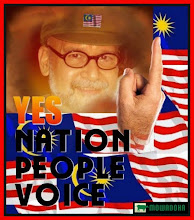
I am beginning to feel sorry for the guys at Warner Bros.
The Harry Potter franchise is so hot that it's just passed James Bond on the dead run -- and there are two more Potter movies still to come.
The studio comes out with a low-budget pic called "The Hangover" -- it's really a dick joke in search of a movie -- and it rolls up a $300 million worldwide gross.


Heather Graham in Hangover
If I were a suit at Warner Bros. I'd be downright scared.
When you're on a roll like this, something terribly bad has to happen.
But I spent some time with Alan Horn last week and he, as usual, is a study in calm.
The job of running a major studio has proved crazy-making for many individuals, but Horn has always been a master of self control.
"Even Alan's fits are so low-decibel, you have to pay close attention," says one agent who has dealt with him a lot.
The Warner Bros. chief once said "lose my phone number" to an overaggressive agent, but he said it so politely that the agent almost missed the nuance.
Typically, Alan Horn is not celebrating his good fortune but rather focusing in on the future.
He has a wide range of potential future franchise films lined up -- he's just signed Ryan Reynolds for "The Green Lantern."
Two Hobbit movies will go into production under the New Line label, and if MGM doesn't co-finance them, other partners are at the ready.
The Potter franchise stands out as a testimony to shrewd management.
The seven members of the cast have remained with the project thanks to smart studio diplomacy (and largesse).
The writer who shapes the movies, Steve Kloves, has managed to keep the complex narrative under control rather than letting it trample all over the movie, as was the case with "Angels and Demons" at Sony.
The stakes are mind-numbing.
Add marketing to production costs, and Potter VI represents a $400 million investment, which would normally be intimidating except for the fact that Potter Inc. is a $5 billion industry.
The problem is that the Alan Horn-Barry Meyer regime contractually has less than two more years to run.
Jeffrey Robinov, Horn’s president of production and a key architect of the current slate, also awaits a new deal.
Plus Jeff Bewkes, the CEO of Time Warner, is sitting on a pile of money, and Wall Street expects him to orchestrate some stellar acquisitions.
He may even poke around NBC Universal to see if there's a deal to be made.
But Alan Horn isn't distracted by any of this.
He's got a company to run and the 'ka-ching' noise has become so loud that it's downright deafening.
Of course, Mr. Calm barely notices.

Doug Ellin, the auteur of "Entourage," feels it's time for his characters to grow up.
Or at least figure out how to live alone and deal with women.
I found myself growing a bit fretful as Ellin explained his plans to me at a lavish HBO party heralding the start of his show's sixth season.
Are these spoiled, unruly kids really ready for the rigors of adulthood?
Well, they'd better be.
The show needs to take on a new dimension.
For that matter, so does the town they play in.
Hollywood, too, is having growing pains.
Indeed, the kids who fight and fret and fuck their way through "Entourage" may, in their own small way, serve as a metaphor for the agonies of the community at large.
The economic crunch has had a delayed impact on Hollywood, but its impact has now become devastatingly clear.
Jobs have become scarce and pay sharply shaved.
Insiders believe the number of film releases will drop sharply from more than 600 last year to as few as 350 in 2010.
"The film business is like a snake digesting a large meal," the Economist pointed out last week.
"The production bulge caused by the deluge of money in 2006 and 2007 will take a year or so to work its way through the system.
The entertainment business poses many contradictions to analysts.
Box office is up as much as 12% this year, but the studios are getting squeezed by their once-flush parents.
Corporate hatchet men at behemoths like Sony or Viacom have thus sent forth their austere mandates:
Cut costs and scale back risks.
That message is not exactly great news to a business whose entire history rests on expensive risk-taking.
The upshot: Just as Vince and 'E' and their confreres may now have to come of age, so do the many actors, writers and other members of Hollywood's creative community who face a tough period of corporate consolidation and cost-cutting.
The balance of power between the talent and the corporate suits has shifted to the corporations.
That translates into the many ugly realities no one likes to think about -- foreclosures, kids being pulled out of private schools, courts jammed with claims for reduced alimony, restaurants shuttering.
It's getting ugly out there.
I'm glad we have "Entourage" to give us a few laughs.








No comments:
Post a Comment